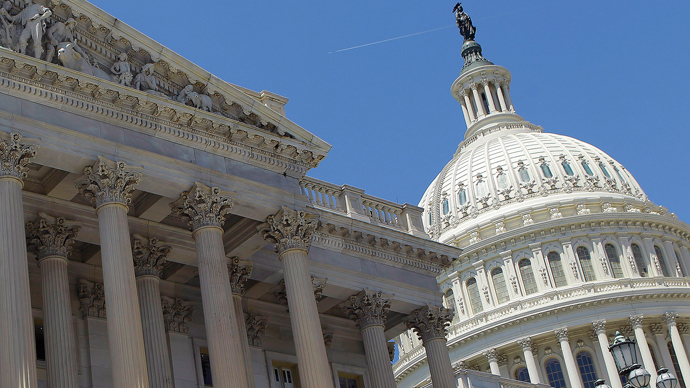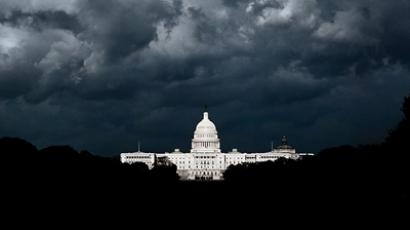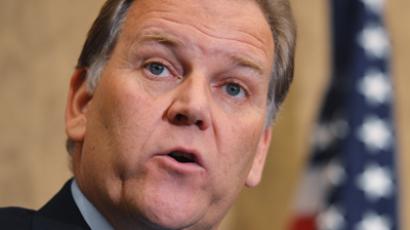Chair of Senate Intelligence Committee says CISPA sister bill in the works

The Cyber Intelligence Sharing and Protection Act, or CISPA, could soon appear again on Capitol Hill. Senator Dianne Feinstein (D-California) says she’s prepared a draft bill that will complement the House-penned CISPA that was approved earlier this year.
Feinstein, the chairwoman of the Senate Intelligence Committee, told reporters at The Hill on Tuesday that she intends on moving forward with a draft bill she helped created to serve as a counterpart to the cybersecurity act approved in the House of Representatives in April by a vote of 288-to-127.
Reps. Mike Rogers (R-Michigan) and Dutch Ruppersberger originally introduced CISPA in late 2011 and touted it as a necessary implement to counter cyberattacks waged at the computer systems of businesses based in the United States. It was passed by the House in mid-2012 but failed to make its way to the Senate, prompting Rogers and Ruppersberger to reintroduce CISPA this past February.
“It is time to stop admiring this problem and deal with it immediately,”Rogers said then.“Congress urgently needs to pass our cyber threat information sharing bill to protect our national security, our economy and US jobs.”
Rogers and Ruppersberger described their bill as a means to "provide for the sharing of certain cyber threat intelligence and cyber threat information between the intelligence community and cybersecurity entities" by encouraging private companies such as Google, Facebook and others to hand over to the government any data that could be used to combat cyberattacks and attempted acts of online espionage. Critics, including the American Civil Liberties Union and the Electronic Frontier Foundation, said the language in the bill is too broad, however, and could allow for the oversharing of personal information between the government and private sector.
Given the revelations attributed to National Security Agency leaker Edward Snowden starting this past June — namely evidence that the federal government and US intelligence community has secretly been collecting information about the communications of American citizens — an attempt to pass a CISPA-like bill in both chambers of Congress could be more unlikely to advance than even last year’s efforts.
The second incarnation of CISPA has garnered the support of the Republican-controlled House since being reintroduced earlier this year, but a comparable Senate version seemed unlikely to emerge in the months since, even before Snowden first began disclosing top-secret NSA documents in June. Only days after the House version was approved, a staffer for Senate Commerce Committee chairman Jay Rockefeller (D-West Virginia) told Huffington Post that while the lawmaker considers information sharing to be “a key component of cybersecurity legislation,” he believed that “the Senate will not take up CISPA.”
"We are currently drafting a bipartisan information sharing bill and will proceed as soon as we come to an agreement," Feinstein’s office said in a statement shortly after.
Feinstein is now reportedly getting ready to push that bill forward on the Hill, but even one co-author of CISPA said the Snowden revelations may have ravaged the chance of a cybersecurity act advancing all the way to the White House.
“Snowden clearly hurt our chances to have an unconfused debate about what we’re trying to accomplish,” Rogers said Wednesday during an event at the US Chamber of Commerce, The Hill’s Kate Tummarello reported.
“The government really doesn’t care about what you’re talking
about on your email,” Facebook or Twitter, he said. “They
are looking to stop the next terrorist attack.”
According to Tummarello, Rogers insisted at Wednesday’s event
that the NSA does “not monitor the domestic Internet usage of
Americans.” Should CISPA be approved, that would be a job
that private businesses will voluntarily take up themselves.
Under CISPA, private companies that are assaulted with
cyberattacks would be legally allowed to share information with
other companies and even the federal government to get a firmer
grasp on hacking attempts and try to combat them without the risk
of facing litigation over allowing that data to change hands.
James Clapper, the director of national intelligence that
overseas over a dozen federal agencies including the NSA,
recently apologized to Feinstein and her committee for being
“clearly erroneous” when he said the government did not
collect data on millions of Americans. When a bi-partisan group
of senators proposed reform to the government’s surveillance
programs in Washington on Wednesday afternoon, Sen. Rand Paul
(R-Kentucky) said Clapper’s resignation would be required to
bring any “credibility” back to the US intelligence
community.
The White House said in both 2012 and 2013 that Pres. Obama would be advised to veto CISPA
if it passes Congress.














